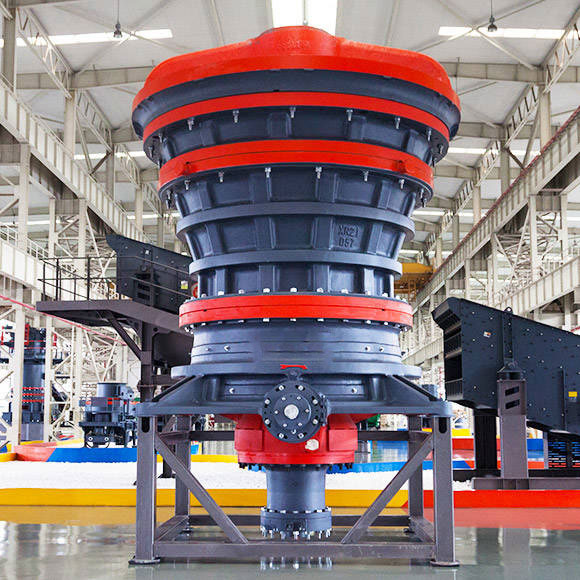Gyratory crushers are large machines used for crushing rocks, ore, and other materials. They are commonly used in the mining, construction, and mineral processing industries as primary crushers. Gyratory crushers have a conical-shaped inner surface that gyrates within a fixed outer shell, crushing the material between them. They are capable of producing a large amount of product with a relatively low power consumption compared to other types of crushers.

Gyratory crushers play an important role in commi-nution as primary crushing units. They are suitable and economical for high production rates, typically greater than 1,500 t/h (1,650 stph). Although these crushers can be applied to materials with a wide variety of compressive strengths, they are especially preferred for materials with compressive strengths grreater than 190 MPa (27,500 psi), which are considered very hard, for all kinds of abrasive materials . The feed and product size distributions and produc-tion requirements are the main factors that affect energy consumption in the crushing process. Because crushing involves machine-material interaction, the specic pa-rameters of the machine and the material also strongly inuence energy consumption. For example, reducing the closed-side setting to obtain a higher reduction ratio signicantly increases the energy consumption of the crusher. Likewise, the coarser the feed size, the greater the energy required to crush it. However, the energy expended in breaking the particles is only a small fraction of the total energy expended in the breakage process .
Gyratory crushers are advantageous over other types of crushers in several ways. They are more efficient at crushing hard and abrasive materials, and they have a higher capacity than jaw crushers. Additionally, they are typically more reliable and require less maintenance. Gyratory crushers are also more suited to handle materials that are wet or sticky, which can cause problems for other types of crushers.
One disadvantage of gyratory crushers is that they are more expensive to purchase and install than other types of crushers. Additionally, the cost of maintaining a gyratory crusher can be higher than other types of crushers due to the complexity of the machine and the maintenance required to keep it in good working condition. However, the high capacity and efficiency of gyratory crushers often make them the preferred choice for large-scale mineral processing operations.
Gyratory crushers are available in different sizes and configurations to meet the specific needs of different industries. For example, some crushers are designed to handle very large pieces of material, while others are designed to produce finer output with less power consumption. Some crushers are also equipped with special features to make them more effective at processing specific types of materials, such as rock or ore.
Gyratory crushers are a reliable and efficient option for primary material processing. They are capable of handling large pieces of material with ease and are well-suited for crushing hard and abrasive materials. While they may be more expensive to purchase and maintain than other types of crushers, their high capacity and efficiency make them a preferred choice for many large-scale mineral processing operations.
